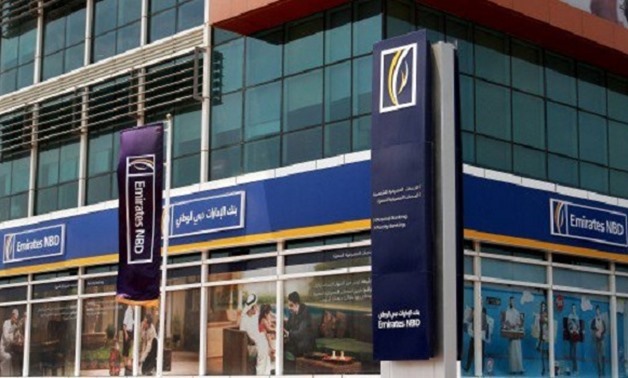
FILE: Emirates NBD Egypt branch in Cairo
CAIRO – 5 March 2018: Egypt’s Emirates NBD Purchasing Managers’ Index (PMI) for the non-oil private sector fell to 49.7 in February, compared to 49.9 in January.
Emirates NBD research said in a report on Monday that this decline refers to the contractionary of the Egyptian non-oil private sector, given that the headline figure was near from neutral 50.0 level which delineates contraction and expansion.

The report added that the outlook remains fairly upbeat, especially with respect to recent annual averages.
“The headline PMI figure has been on a broad uptrend since the economic reforms implemented as part of an IMF package began in November 2016, and in November exceeded the 50.0 mark for the first time in two years,” the report said.
“In particular, new orders, new export orders, and business optimism were all in positive territory in the latest survey, supporting our view of a strengthening Egyptian economy, and our expectation that the headline figure will begin to broach the 50.0 level more consistently in the coming quarters,” the report clarified.
Egypt’s exports rose 23 percent, reaching $2.47 billion in December 2017, compared to $2.01 billion in the same month of the previous year.
The Central Agency for Public Mobilization and Statistics attributed the increase of exports to the rise of some commodities’ value as crude oil which rose by 92.3 percent, fertilizers (by 68.1 percent), ready-made garments (by 14.2 percent), and plastics in primary forms "plastics" (by 98.2 percent).
The report referred to the flotation, saying that despite improving the conditions in Egypt, the effect of the currency depreciation will weigh on firm’s margins.
Given that Egypt floated its currency in November 2016, by almost 50 percent in front of the dollar as a step of the economic reforms the country took during this period and followed by the International Monetary Fund’s (IMF) loan.
Egypt received three tranches of IMF loan till now with total disbursements to $6.08 billion, with expectations to take its fourth tranche next April.
The report continued that firms still have to absorb many of their higher costs themselves, and this is leading to job losses as businesses seek to curb their operating costs.
The employment index recorded the 33rd consecutive month of job shedding in February, at 49.6, according to NBD research.
The Central Agency for Public Mobilization and Statistics (CAPMAS) said last months that Egypt’s unemployment rate slipped to 11.3 percent in the fourth quarter (Q4) of 2017.
Meanwhile, The Emirates NBD Egypt Purchasing Managers’ Index (PMI) rose to 49.9 in January from 48.3 in December.
Comments
Leave a Comment